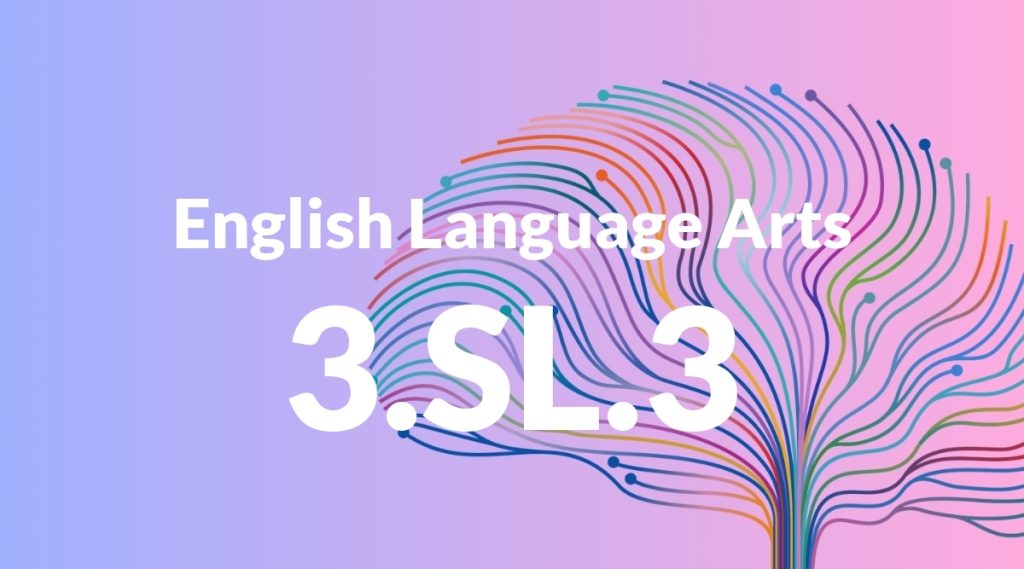Standard: 3.SL.3 – Ask and answer questions about information from a speaker, offering appropriate elaboration and detail.
Grade level: Grade 3
Subject: English Language Arts
Domain: Speaking & Listening
Teacher Overview
This standard emphasizes the importance of asking and answering questions to deepen understanding and engagement. It is crucial for developing effective communication skills, which are foundational for academic success and real-world interactions. Students should be comfortable with basic listening and speaking tasks, such as following instructions and participating in simple Q&A sessions.
Mastering this standard will prepare students for more complex communication tasks, such as debating, presenting, and providing detailed feedback in various contexts.
Common Misconception 1
A common misconception is that any question is appropriate, even if it’s off-topic. This is incorrect because questions should be relevant to the discussion to enhance understanding.
Intervention 1
Use role-playing activities where students practice asking relevant questions in different scenarios. Provide feedback to help them refine their questioning techniques.
Common Misconception 2
Another misconception is that listening is just about hearing words, not engaging with the content. This is incorrect because active listening involves understanding and interacting with the information.
Intervention 2
Implement listening exercises where students must summarize or ask follow-up questions about what they heard. This reinforces the importance of active listening.
Prerequisite Knowledge
Students should have basic listening skills, be able to follow simple instructions, and have some experience with asking and answering questions in a classroom setting.
Subsequent Knowledge
Students will develop advanced listening and speaking skills, such as interpreting complex information, engaging in debates, and providing constructive feedback.
Instructional Activities
- Role-playing exercises to practice asking relevant questions
- Listening and summarizing activities
- Group discussions with guided questions
- Interactive storytelling sessions
- Guest speaker Q&A sessions




